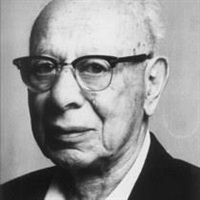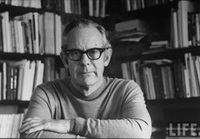EP85 Invited Address 12b - Existential Therapy and the Future - Rollo R. May, PhD
- Average Rating:
- Not yet rated
- Topic Areas:
- Invited Addresses | Existential Therapy | Psychotherapy
- Categories:
- Evolution of Psychotherapy | Evolution of Psychotherapy 1985
- Faculty:
- Bruno Bettelheim | Rollo May, PhD
- Duration:
- 1 Hour 24 Minutes
- Format:
- Audio Only
- Original Program Date:
- Dec 15, 1985
- License:
- Never Expires.
Description
Description:
Educational Objectives:
- To list the basic tenets of existential therapy
- To be able to describe the directions in which existential therapy is evolving
*Sessions may be edited for content and to preserve confidentiality*
Credits
Faculty

Bruno Bettelheim Related Seminars and Products
Bruno Bettelheim (August 28, 1903 – March 13, 1990) was an Austrian-born self-educated psychoanalyst who spent the bulk of his academic career from 1944 to 1973, as a professor of psychology at the University of Chicago and director of the Orthogenic School for Disturbed Children.[2][3]
He is perhaps best known for his essay The Uses of Enchantment (1976), which applied Freudian psychology to fairy tales and won the 1976 National Book Critics Circle Award for Criticism and the 1977 National Book Award in category Contemporary Thought.[4][5]Bettelheim wrote a number of articles and books on psychology for more than 40 years and had an international reputation on such topics as Sigmund Freud and emotionally disturbed children.

Rollo May, PhD Related Seminars and Products
Rollo R May, PhD In 1949, Rollo May received the first Ph/D in Clinical Psychology from Columbia University. In 1938, he was awarded a Master's of Divinity from Union Theological Seminary. Currently, he is in private practice in Tiburon, California. The author or co-authoer of 14 books, he is the recipient of many awards and honors for distingushed contributions and humanitarian work. He is one of the main proponents of humanistic approaches to psychotherapy and is the principal American interpreter of European existential thinking as it can be applied to psychotherapy.


